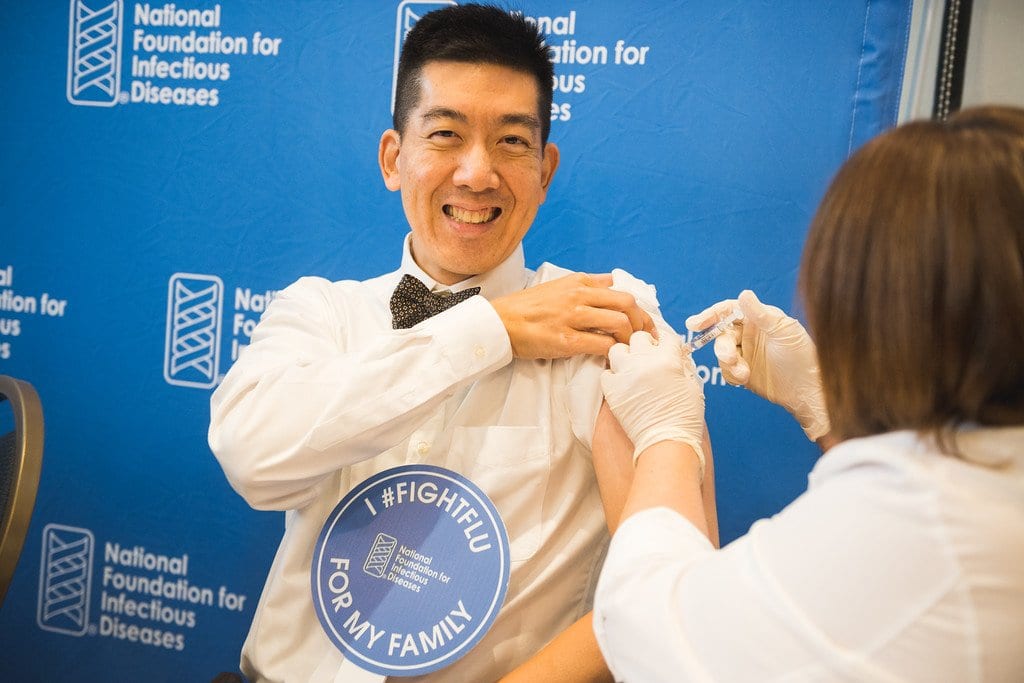AVAC Spotlight: Dr. Wilbur H. Chen
Associate Professor of Medicine and Chief of the Adult Clinical Studies Section
Center for Vaccine Development, University of Maryland School of Medicine
By 2030, the number of adults ages 65 and older in the United States is expected to grow to 71 million—at least 20 percent of the total population. It is particularly important during this stage of life to maintain healthy lifestyles and habits. Receiving recommended immunizations is an essential part of that process.
Wilbur Chen, MD, MS, FACP, FIDSA, has dedicated his knowledge, research, and expertise to developing improved vaccines for the elderly. As a board-certified infectious disease physician, a Fellow of the American College of Physicians (FACP) as well as the Infectious Diseases Society of America (FIDSA), he understands that we must prioritize the healthcare needs of this rapidly growing segment of the population.
As we get older, we become more susceptible to severe consequences of vaccine-preventable diseases. One reason is “immunosenescence” or the weakening of the immune system over time. When that happens, people over 65 are at greater risk of developing certain infections. That makes it an even greater imperative to ensure that the elderly receive all recommended vaccines, such as flu, pneumococcal, and shingles. Unfortunately, vaccination rates among this segment of the population are not nearly as high as they could or should be.
For example, the flu vaccine not only helps prevent flu, but also reduces rates of hospitalization, cardiovascular events, and premature death. However, one-third of older adults do not receive it. Seventy percent of older adults don’t get vaccinated against shingles, even though the vaccine is proven to either prevent it or reduce time and suffering for the one-in-three adults who do get it. Eighty percent of adults don’t get vaccinated against pneumococcal pneumonia, even though 175,000 people are hospitalized with it annually.
So how can we improve these numbers? Dr. Chen recommends a multi-faceted approach:
- Increase awareness of available vaccines, particularly among the elderly.
- Mobilize healthcare professionals to encourage patients to receive recommended vaccine.
- Create a research agenda to develop new and better vaccines for older adults.
- Institute a global call for immunizations across the lifespan (WHO, Global Vaccine Action Plan
- Promote the benefits of community protection (“herd immunity”) as well as the benefits of pediatric immunization
Committed and qualified scientists and doctors like Dr. Chen have dedicated their careers to improving the health of older adults, and they know that recommended vaccines are a critical part of that equation. By following their lead, we can make great strides toward ensuring good health across the lifespan.
Dr. Chen’s research is actively engaged in developing improved vaccines for older adults, such as using novel adjuvants (ingredients that can help to boost the immune response to vaccines). He is currently working with the National Institutes of Health to evaluate candidate avian influenza (i.e., bird flu) vaccines, since they are highly likely to represent the next pandemic.
